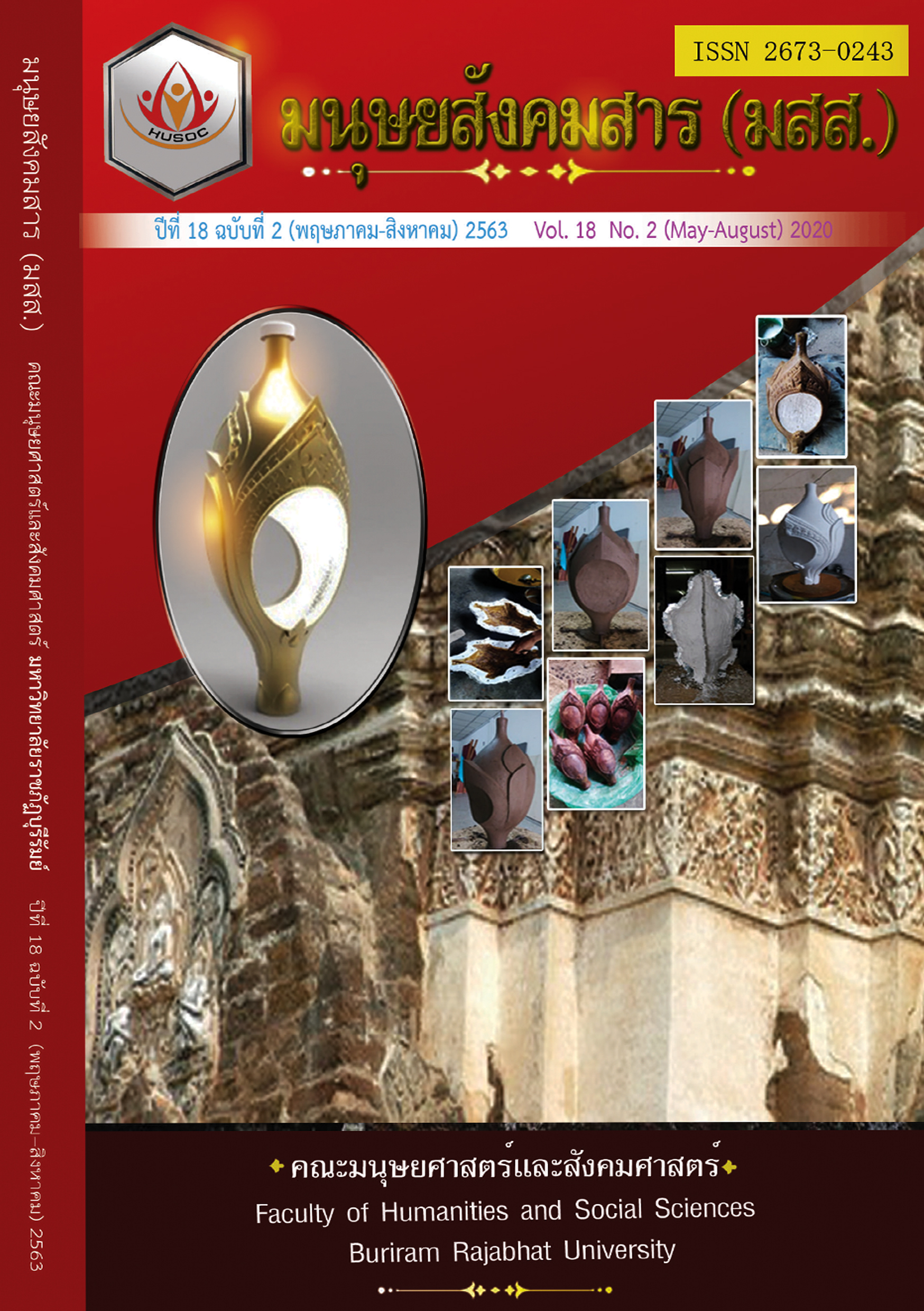An Investigation of Autonomous English Learners’ Personal Learning Environments
Main Article Content
บทคัดย่อ
Learning autonomy is important for the learning process in the 21st century, not because of the exponential rate of technological advancement, but because it is about freedom of choice that is supportive to the learning process. This study focuses on learning autonomy in the sense of learners' ability to plan and control their own learning process. The process also includes the ability to re-plan and try again in case of failure. This helps shed some light on the fact that the learning process does not consist of a set of fixed steps, and that it is dynamic and adjustable because of uncertainty. The program, MacroSIM, was created in a virtual world as a language learning environment for an ESP course at tertiary level. Its design is underpinned by constructivist concepts and reduces irrelevant factors to the language learning. This article presents only qualitative findings which were analyzed from all participants’ diaries of the experimental group. The findings show that they could improve the structure of their learning process systematically after ten weeks of learning through the MacroSIM program. The investigation concludes with a model of self-driven language learning of 39 participants as language autonomous learners.
Article Details
เนื้อหาและข้อมูลในบทความที่ลงตีพิมพ์ในวารสารทดสอบระบบ ThaiJo2 ถือเป็นข้อคิดเห็นและความรับผิดชอบของผู้เขียนบทความโดยตรงซึ่งกองบรรณาธิการวารสาร ไม่จำเป็นต้องเห็นด้วย หรือร่วมรับผิดชอบใดๆ
บทความ ข้อมูล เนื้อหา รูปภาพ ฯลฯ ที่ได้รับการตีพิมพ์ในวารสารทดสอบระบบ ThaiJo2 ถือเป็นลิขสิทธิ์ของวารสารทดสอบระบบ ThaiJo2 หากบุคคลหรือหน่วยงานใดต้องการนำทั้งหมดหรือส่วนหนึ่งส่วนใดไปเผยแพร่ต่อหรือเพื่อกระทำการใดๆ จะต้องได้รับอนุญาตเป็นลายลักอักษรจากวารสารทดสอบระบบ ThaiJo2 ก่อนเท่านั้น
เอกสารอ้างอิง
Farris, T. (2013). “Hole in the Wall” Education & its Benefits to Society. Interface: The Journal of Education, Community and Values, 13.
Iamdar, P. & Kulkarni, A. (2007). ‘Hole-In-The-Wall’ Computer Kiosks Foster Mathematics Achievement – A Comparative Study. Educational Technology & Society, 10(2), 170 – 179.
IMVU. (2016). IMVU Information: Frequently Asked Questions. Retrieved from http://www.imvu.com/about/faq.php
Kamii, C. (1984). Autonomy: The aim of education envisioned by Piaget. The Phi Delta Kappa International, 65(6), 410-415. Retrieved on 6 September 2018 from http://www.stanleyteacherprep.org/uploads/2/3/3/0/23305258/kamii._ autonomy_the_aim_of_education_envisioned_by_piaget.pdf
Lian, A. P. (2000). From first principles: Constructing language learning and teaching environments. In M.-S. Lin (Ed.), Selected Papers from the Ninth International Symposium on English Teaching (pp. 49–62). Taipei: Crane Publishing.
_______. (2001). Imagination in language teaching and learning. Retrieved on 23 February 2018 from http://www.andrewlian.com/andrewlian/prowww/ imagination/
_______. (2004). Technology-enhanced language-learning environments: A Rhizomatic approach. In J.-B. Son (Ed.), Computer-Assisted Language Learning: Concepts, Contexts and Practices (pp. 1–20). New York, NY: Universe.
Lian, A. P. & Mestre, M. C. (1985). Goal-directed communicative interaction and
macrosimulation, in Revue de Phonetique, nos. 73-74-75, 1985, pp.185-210.
Lian, A. P. & Sangarun, P. (2017). Precision language education: A glimpse into a possible future. GEMA Online Journal of Language Studies. Volume 17(4), November 2017. Retrieved on 28 February 2018 from https://www. researchgate.net/publication/321370833_Precision_Language_Education_A_Glimpse_Into_a_Possible_Future_-_-_Full_text_at_httpejournalukmmy gemaarticleview220966885
Mackey, A. & Gass, S. M. (2005). Second language research: Methodology and design. Mahwah, NJ: Lawrence Erlbaum Associates.
Mitra, S. (2007). Kids Can Teach Themselves. TED Talks. Retrieved from https://www.ted.com/talks/sugata_mitra_shows_how_kids_teach_themselves#t-628827
Piaget, J. (1973). To understand is to invent: The future of education. New York: Grossman Publishers. Retrieved on 9 April 2018 from http://unesdoc. unesco.org/images/0000/000061/006133eo.pdf
Punthumasen, P. (2007). International program for teacher education: An approach to tackling problems of English education in Thailand. The 11th UNESCO-APEID International Conference Reinventing Higher Education: Toward Participatory and Sustainable Development, 12-14 December 2007 Bangkok, Thailand. Retrieved on 7 March 2018 from http://backoffice. onec.go.th/ uploaded/Category/EngBook/ProblemEngEd13dec07-03-03-2011.pdf
Richards, J. C. & Rodgers, T. (2014). Approaches and methods in language teaching
(2nded.). Cambridge: Cambridge University Press.
Singhasiri, W. & Thepsiri, K. (2015). Teachers’ beliefs about task-based language
teaching. Innovation in Language Learning and Teaching The Case of
Thailand. Edited by Darasawang, P. & Reinders, H.
Toffler, A. (1981). The third wave. New York: Bantam Books.


